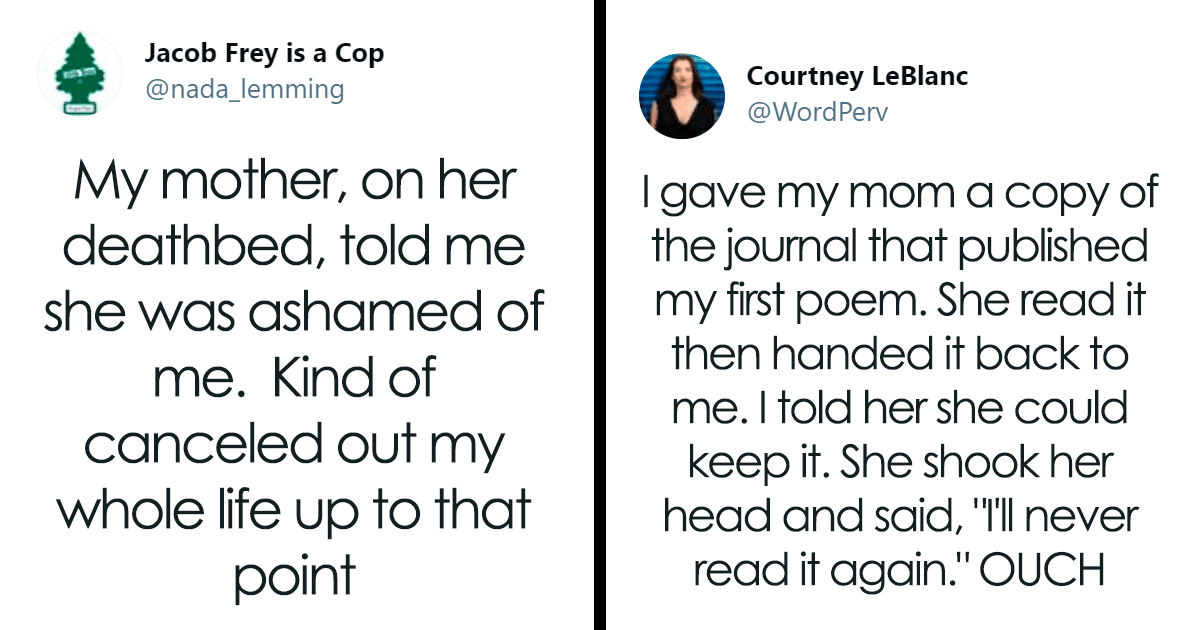Have you ever had someone say something to you that ended up sticking in your memory?
It is hard when these words come from strangers or even acquaintances, but they can leave a lasting impression when it comes out of your own parents’ mouths.
On May 3rd, assistant professor at Stockton University Emily Van Duyne tweeted a question: “Does anyone else ever remember a cruel thing your parent said to you [and] it takes the wind out of you? Even if it was almost ten years ago?” Turns out, they do.
Emily’s tweet has received over 200,000 likes and plenty of comments where people revealed their parents’ mean phrases that will probably stick with them for life, and the thread has become like a giant online mental health session.
“I want you all to know I am sorting through and reading and thinking of and trying to respond individually to each of these stories,” Van Duyne wrote as the responses kept pouring in. “I’m making pasta and reminding myself to be tender with my kids and tender with myself, as much as humanly possible, always. Please do the same.”

#1

#2
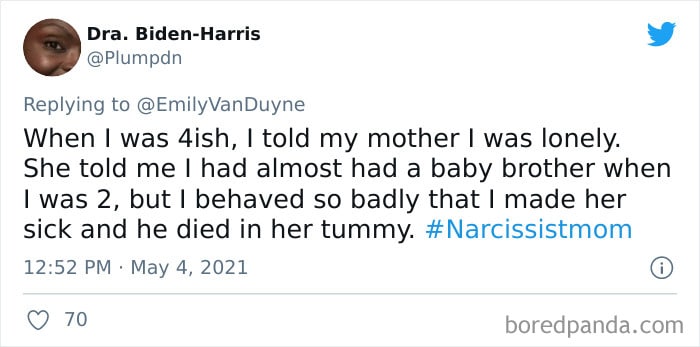
#3
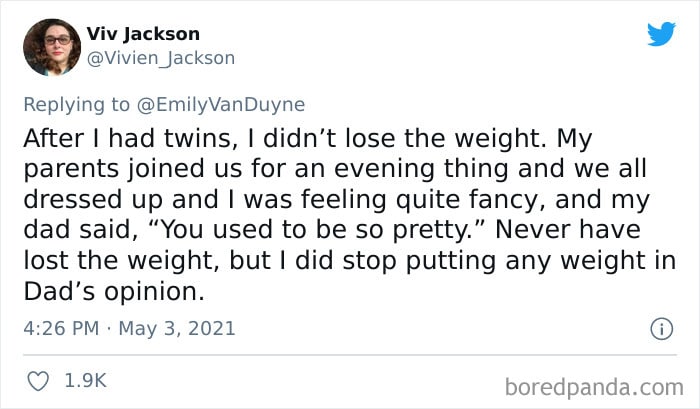
According to Jessie-Anne Bird, a psychologist from Johannesburg, South Africa, we can be deeply wounded by the words of others. “If we are not careful, we can react in a way that may escalate things unnecessarily,” Bird told us.
Instead, the psychologist suggested we use the STOP technique, and it looks like this:
S: Stop. Wait before you react.
T: Take a step back – give yourself some time and space from the situation.
O: Observe what’s going on inside and outside. Become aware of your thoughts and feelings, think about how they may be impacting your decision-making.
P: Proceed mindfully – once you have an understanding of what is happening, and have thought through your options – then you will be in a position to make a choice about how to respond or react.
#4

#5
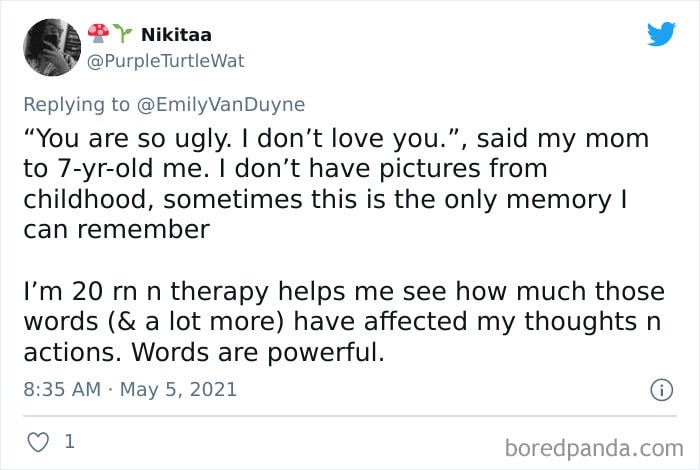
#6
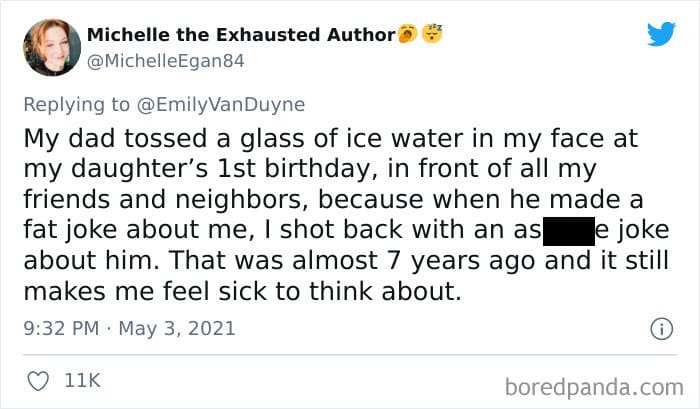
Experts associate parent-child connectedness with a wide range of health indicators. Close, positive family relationships that feature open communication help young people stay healthy and avoid substance use and violent behavior.
“We tend to use the perceptions of others to inform our self-view, and we might place more importance on the feedback we receive from those we value,” Bird said. “When we hear hurtful things from those we love or esteem – they may hurt more because we are more likely to believe them.”
#7

#8
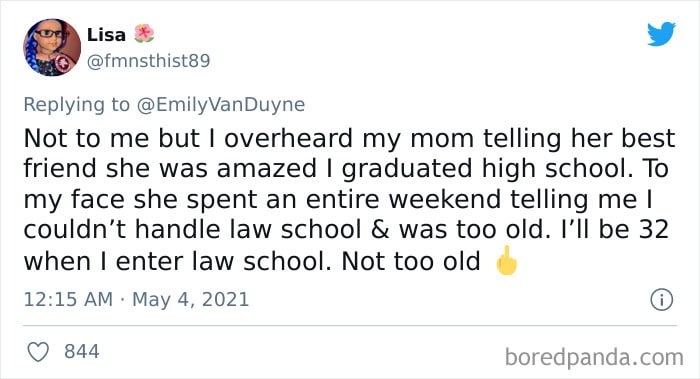
#9
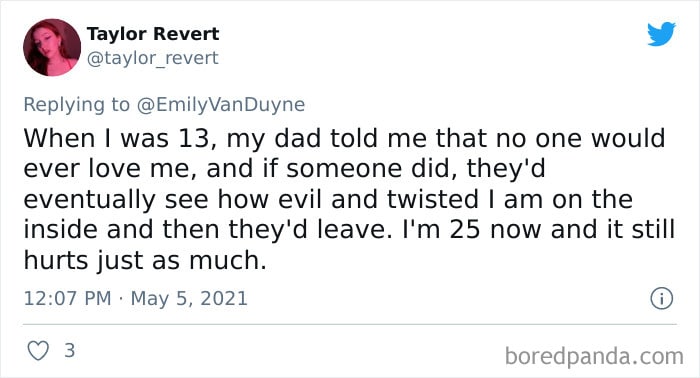
Imi Lo, a psychotherapist, art therapist, and consultant for emotionally intense and highly sensitive people, thinks the relationship between a child and a parent is one of the most instinctively protective, loving, and nurturing things humans experience. So when such a connection is clouded with feelings of deep hurt and resentment, these negative emotions can follow people beyond childhood and adolescence into adulthood.
“At the end of the day, you want to be able to cross over the bridge of resentment and move to a place of peace,” Lo wrote in Psychology Today. “But however cliche this sounds, you need first to love yourself, embracing both the good and the bad, your ability to love, and your rage towards others. You must forgive yourself for your inability to forgive. You are a survivor for being here today. You deserve to live without emotional baggage.”
If what you do grows into a deep sense of love for your parents, then the journey would have been worth it. If not, at least you know that you tried, and you will have no regrets.
#10

#11

#12

#13
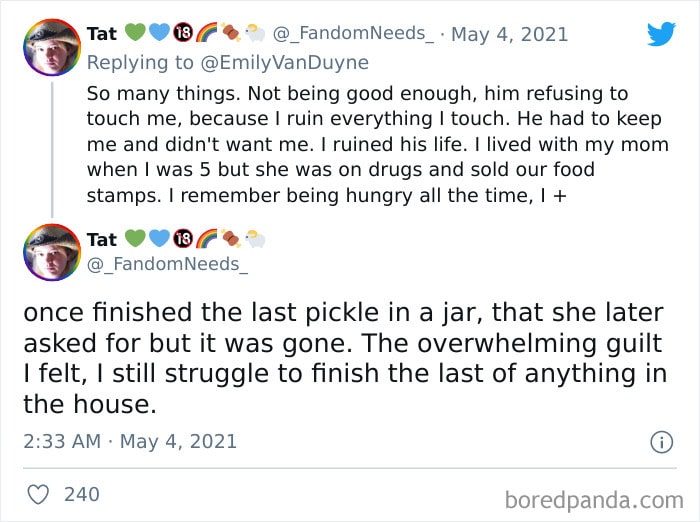
#14
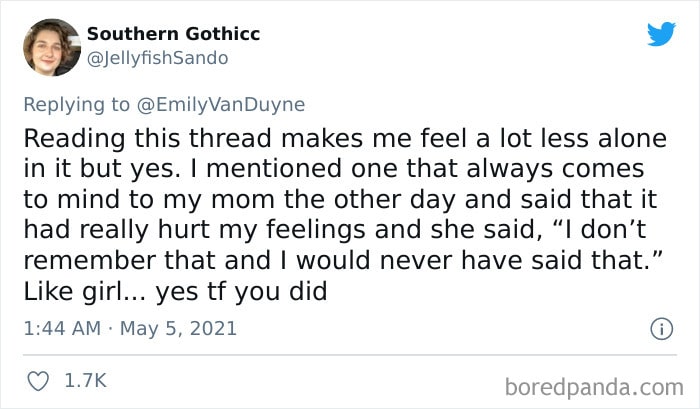
#15

#16

#17
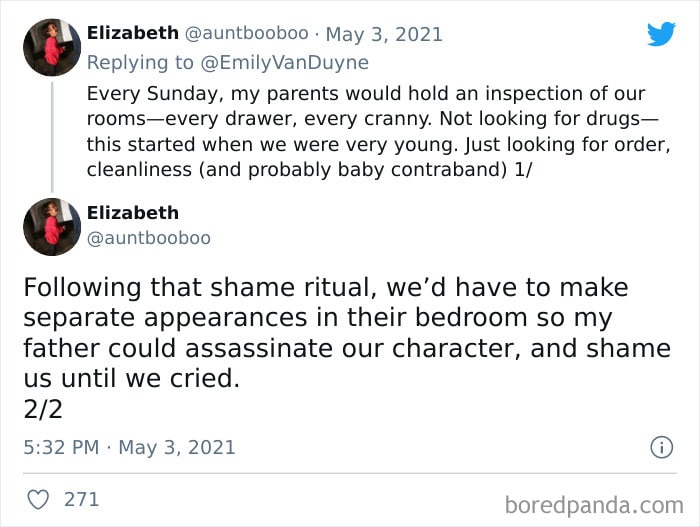
#18
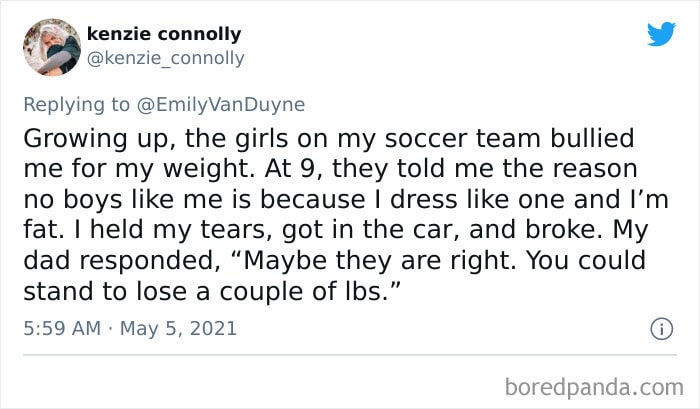
#19
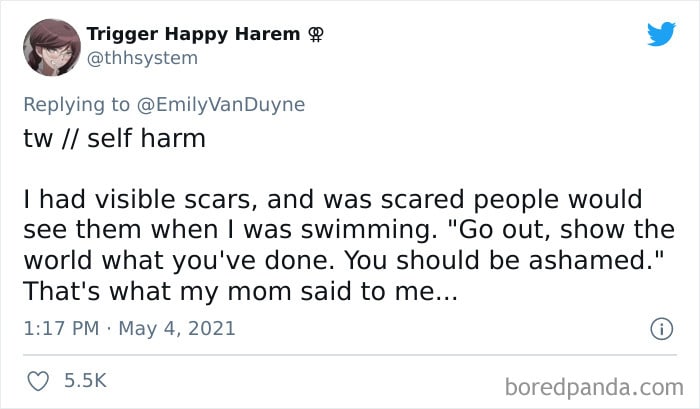
#20

#21

#22

#23
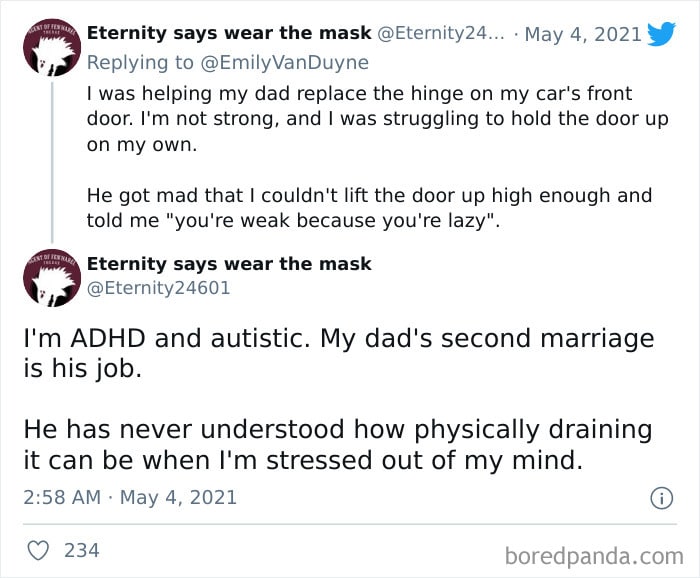
#24

#25
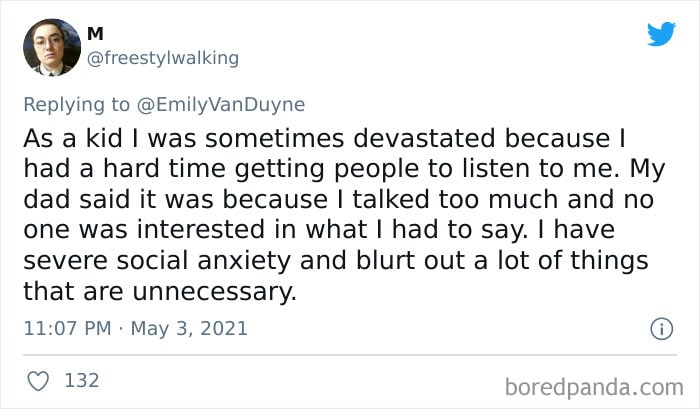
#26
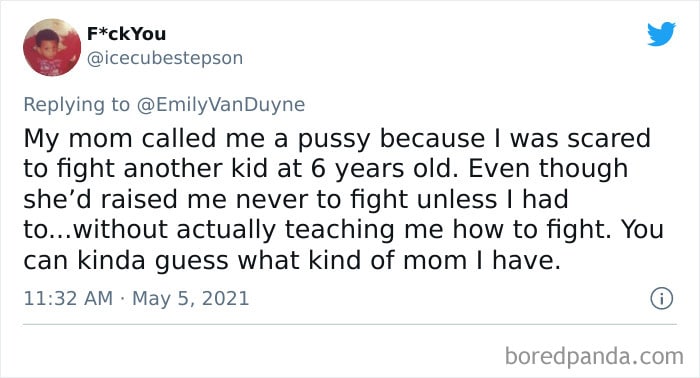
#27
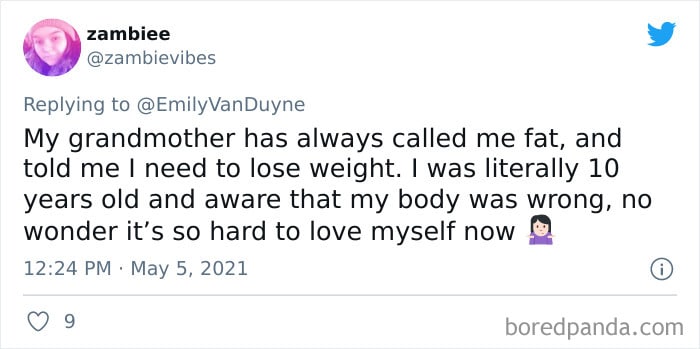
#28

#29
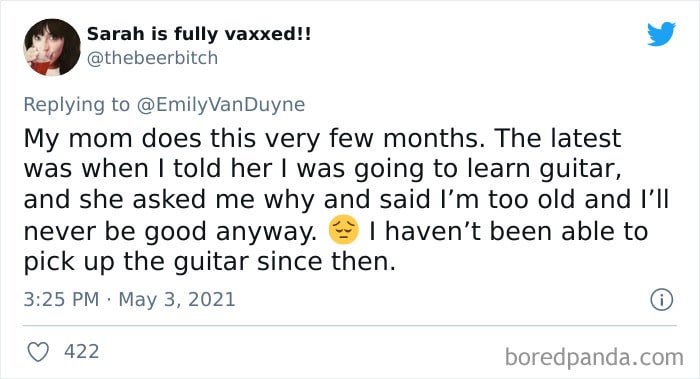
#30



